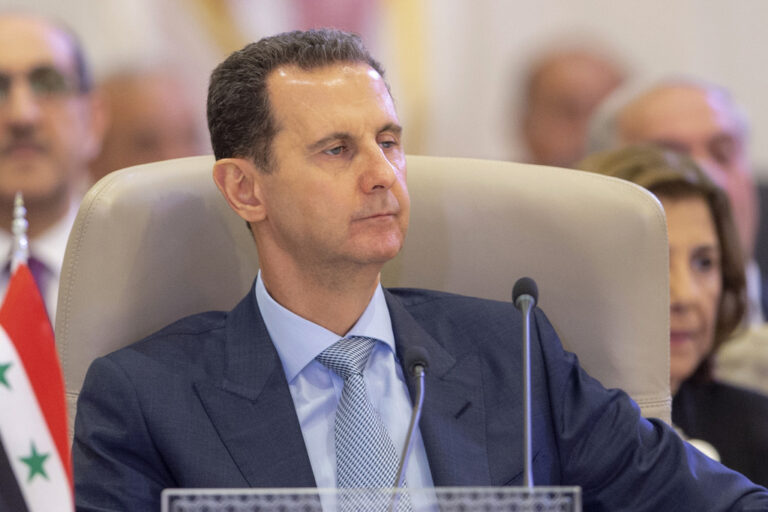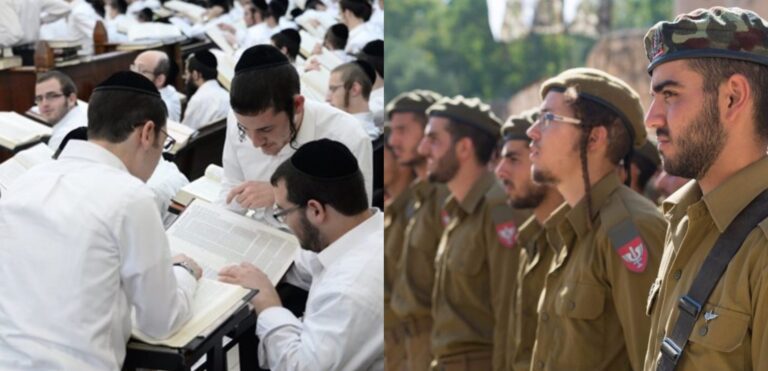 By Rabbi Yair Hoffman for the Five Towns Jewish Times
By Rabbi Yair Hoffman for the Five Towns Jewish Times
The picture posted above has some serious money being transferred. But that is how it should be – at least according to the Rambam and Mishna Brurah. We should be spending more money on this Mitzvah than all the others. That includes the seudah, shalach manos and the costumes. But let us start at the beginning.
THE MITZVAH AND ITS SOURCES
The mitzvah of Matanos L’Evyonim on Purim is discussed in the Gemorah at the bottom of Megillah 7a, Tani Rav Yoseph. The Mitzvah is to give at least one gift to two different poor people on the day of Purim. The plural form of the word “L’Evyonim” teaches us that it must be given to two people.
There is also another Gemorah in Bava Metziah 78b that discusses the charity plate of Purim. It is a debate among the Rishonim whether or not this Gemorah is discussing the Mitzvah of Matanos L’Evyonim, or whether it deals with a separate Mitzvah of providing for the Purim needs of the poor.
NATURE OF MITZVAH
There seems to be a debate among the Rishonim as to the nature of the Mitzvah. Is it a Mitzvah of Tzedakah, or is Matanos L’Evyonim its own special Mitzvah of the day of Purim – a Mitzvah associated with creating happiness?
We will see that this issue is a matter of debate among the Poskim. On account of this debate, there are a number of differences in halacha as to the nature of fulfilling this Mitzvah.
• Can you fulfill the Mitzvah with Maaser funds? If it is Tzedaka – yes. If it is a happiness Mitzvah then not.
• Is an ani – a poor person obligated to fulfill this Mitzvah? If it is Tzedaka then no. The obligation of an Ani to give Tzedaka is once per year. If it Simcha, however, then he must give the matanos l’evyonim.
Even a poor person who himself has reached a financial state that he must ask for charity, must still give.
PREAMBLE
The Yesod v’shoresh HaAvodah (12:6) recommends that one should recite the following preamble before fulfilling the Mitzvah:
L’shaim ichud kudsha brich hu, hareini muchan l’kayem mitzvas assei shekasuv besorasainu hakedosha shetzivani yotzri ubori “Nason titian” u “pasoach tiftach” vegam mitzvas assei shel kaballah “umatanos l’evyonim.”
It is clear that the Yesod v’Shoresh HaAvodah understands that this Mitzvah is Tzedakah.
The Ramban (Bava Metziah 78b) explains that the main purpose of this Mitzvah is to spread Simcha – joy and delight.
HOW IT MAY BE FULFILLED
This obligation may be fulfilled through any type of gift — money, food, drink, or clothing. One should, however, try to give a substantial monetary gift. If one does use money, ideally it should be enough to buy bread weighing at least three eggs — five slices, approximately. At the very least, however, one must give a perutah or its equivalent value to each of two poor persons. A perutah is 1/1244th of an ounce of silver.
Many Poskim, however, are concerned that giving the minimal amount no longer causes the feeling of Simcha to the poor. When these minimal amounts were calculated the value of silver was significantly higher.
Rav Shmuel Kamenetsky, shlita, thus rules that the minimum amount should be $1. The Shaarei Teshuvah rules that it should be the equivalent amount of the cost of a meal for a poor person. In modern times this amounts to approximately five dollars (Rav Shmuel Fuerst).
SPEND MORE ON MATANAS L’EVYONIM
The Gedolei HaPoskim (See Mishna Brurah 694:3) tell us that it is preferable to spend more on the Mitzvah of Matanos l’Evyonim than on the Mitzvah of Mishloach Manos. The calculation, of course, includes the food items, the packaging, and the time value of the effort placed into making the Mishloach Manos. For many people, all of this amounts to several hundred dollars. Thus we should give this amount for Matanos l’Evyonim as well.
WHEN GIVEN
These gifts should be given in the daytime, after the Megillah is read. Matanos la’evyonim should be above and beyond maaser. Therefore Maaser money should not be used, but it may be added to it.
Some Poskim hold that technically, Matanos la’evyonim may be given before Purim. However, because of the concern that the recipients will spend it earlier, it is preferable to give it on Purim itself. Others write that one should make sure that the funds are only given on Purim itself and that when an intermediary is used it should be held as a package for the poor person and not received on behalf of the poor person.
If one thought to give to a specific poor person but was unable to facilitate it, one may give it to another as long as one did not verbalize it. If one verbalized that he wishes to give to that specific person, he should follow up (BaLailah Hahu p. 16).
THE MONEY ITSELF
Money set aside for matanos la’evyonim should not be changed to another tzedakah without a ruling from a posek. This is based upon the Gemorah in Bava Metziah (78b), according to those Rishonim that learn that the Gemorah is dealing with Matanos l’Evyonim. Other Rishonim learn that this Gemorah doesn’t deal with Matanos L’Evyonim at all, and therefore there is room for a Posek to be lenient.
One is not overly strict with the poor on Purim to determine whether they are really poor or not. Whoever puts his hand out — we give him. According to leading poskim, this does not apply to organizations, however. Why is that? Perhaps because there is no simcha in regard to making organizations happy – I is only making people happy that makes the Simcha.
WOMEN AND CHILDREN
Women are also obligated to give gifts to the poor on Purim. A married woman may fulfill the mitzvah through her husband. Ideally, however, the husband should inform his wife that he has given matanos la’evyonim for her, as well.
Children who are dependent on their parents’ table should still give matanos la’evyonim on their own (Aruch HaShulchan 694:2). Even though they may be exempt from Tzedakah, there is still the idea of Simcha.
TO WHOM ONE GIVES
Originally, the Mitzvah was to give to a poor person who did not have enough money to have a meal on Purim. Nowadays, such a definition is indeed rare. The Poskim have thus ruled that it may be given to any poor person who is eligible to receive Maaser funds. The Chazon Ish (Trumos UMaasros cited in Balailah Hahu p.12) has written that it may be given to anyone who is not “mesudar beparnasaso” to the extent that he can sustain himself and his family.
CHECKS
Rav Moshe Feinstein, zt”l, ruled that one may fulfill the mitzvah of matanos la’evyonim with a check. This is true even if the check is post-dated. This is also the opinion of Rav Shlomo Zalman Auerbach zt”l (cited in Halichos Shlomo 19:23) and of Rav ELyashiv zt”l, cited in Yismach Moshe (p. 140).
Rav Nissin Karelitz Shlita, on the other hand, is of the opinion that the check must be negotiable on Purim itself in order for one to fulfill the Mitzvah. This may present a difficulty when Purim falls on a Sunday. In inner cities where they have check cashing facilities open on Sundays, it would, of course, not be a problem.
There are those who have questioned whether these rulings in Israel are applicable in America where one may place a stop payment on checks. The truth is that both in Israel and in England a stop payment may be placed on a check as well as long as there are funds to cover it.
MOURNER
Although generally speaking one does not give gifts to an Avel, a mourner, one may give him Matanos L’Evyonim because it is considered Tzedakah.
A mourner within twelve months must, of course, give Matanos L’evyonim too. This is true also for a mourner within the seven days of Shiva.
An Onain may give Matanos L’Evyonim in the merit of the Neshama of the deceased, according to Rav Shlomo Zalman Auerbach.
One may fulfill the mitzvah of matanos la’evyonim by giving the money even to a young child who is considered poor.
Matanos la’evyonim may be given anonymously. This is the ideal form of fulfilling the mitzvah.
SMALL AMOUNT TO MANY OR MUCH TO FEW
There is a debate as to whether it is preferable to give many poor people a minimum amount of matanos la’evyonim or to give just a few people a significant amount of matanos la’evyonim. The Bach (siman 695) writes that it is preferable to give more people the lesser amount. Rav Elyashiv, shlita, is quoted (Shvus Yitzchak 8:2 as cited in Kovetz Halachos, p. 92) that it is preferable to give fewer people a more significant amount. Rav Elyashiv seems to be emphasizing the Simcha aspect of the Mitzvah. Since either way one fulfills the mitzvah, one should perform it in the manner in which one feels most inspired toward dveikus Bashem.
The author can be reached at [email protected]










